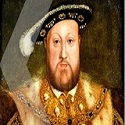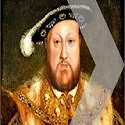Henry VIII,the Reign
Timeline 1539
Pledge to Schmalkalden League
January 1539
Christopher Mont sent to Germany to pledge Henry’s alliance to the Schmalkalden League. He was also to warn them about being tricked into a pact with Charles at the forthcoming diet in Frankfurt.
Christopher Mont sent to Germany to pledge Henry’s alliance to the Schmalkalden League. He was also to warn them about being tricked into a pact with Charles at the forthcoming diet in Frankfurt.
Francis & Charles Conclude Pact at Toledo
Toledo, Spain. Francis and Charles conclude a pact in which each promised not to enter into any agreement
without the other’s consent.
without the other’s consent.
Reginald Pole against Henry
Reginald Pole sent out from Rome to rally Catholic powers against 'the most cruel and abominable tyrant',
the King of England.
the King of England.
Henry Pole Executed
9 January 1539
Henry Pole, 1st Baron Montagu, executed.
Henry Pole, 1st Baron Montagu, executed.
Pole arrived in Toledo to Meet Charles
11 February.1539
John III, the Peaceful Duke of Cleves Died
6 February 1539
He is succeeded by Duke William of Jülich-Cleves-Berge.
He is succeeded by Duke William of Jülich-Cleves-Berge.
Sir Nicholas Carew Executed
8 March 1539
Former royal favourite, once a close friend of the king but a critic of Thomas Cromwell, Sir Nicholas was executed. Carew was tried and convicted on 14 February 1539 and beheaded on Tower Hill.
Former royal favourite, once a close friend of the king but a critic of Thomas Cromwell, Sir Nicholas was executed. Carew was tried and convicted on 14 February 1539 and beheaded on Tower Hill.
Embassy to Cleves
10 March 1539.
Henry drafts instructions for embassy to be sent to Cleves.
Henry drafts instructions for embassy to be sent to Cleves.
Fear of Attack
Acute fear of multiple attack from Scotland, the Low Countries, France and Spain. Henry builds new coastal defences and reviews mustered troops at St James's.
First Authorised Bible in English
The Great Bible was the first authorised edition of the Bible in English to be read aloud in English church services. It was prepared by Myles Coverdale, on the commission of Thomas Cromwell, Secretary to Henry VIII and Vicar General. The clergy was instructed to provide ‘one book of the bible of the largest volume in English, and the same set up in some convenient place within the said church that ye have care of, whereas your parishioners may most commodiously resort to the same and read it’.
Signs with Charles
19 April 1539
Represented by Philip Melanchthon, the Schmalkaldic League agreed a treaty with Charles for fifteen months, starting 1 May 1539. During this time, both parties would try and resolve the differences in their confessions. As a result of this peace, the Schmalkaldic League lost the protection of France.
Represented by Philip Melanchthon, the Schmalkaldic League agreed a treaty with Charles for fifteen months, starting 1 May 1539. During this time, both parties would try and resolve the differences in their confessions. As a result of this peace, the Schmalkaldic League lost the protection of France.
Cromwell Ill at Crucial Time
19 April 1539
Cromwell writes to Henry and says that he is very ill and unable to attend 'your highness'. He remains confined to his house until 10 May.
Cromwell writes to Henry and says that he is very ill and unable to attend 'your highness'. He remains confined to his house until 10 May.
Germans Close Theological Discussions
23 April 1539
German ambassadors, led by two laymen, arrive in London with a letter dismissing further theological discussion. The conservatives would be able to use this against the evangelists as a rejection of Henry’s interest in theological discussions.
German ambassadors, led by two laymen, arrive in London with a letter dismissing further theological discussion. The conservatives would be able to use this against the evangelists as a rejection of Henry’s interest in theological discussions.
Act for the Dissolution of the Greater Monasteries
19 May 1539
Statute passed by parliament granting the king’s right to all monasteries not included in the 1536 legislation, that is to say, all of the rest of the monasteries in England and Wales.
Statute passed by parliament granting the king’s right to all monasteries not included in the 1536 legislation, that is to say, all of the rest of the monasteries in England and Wales.
Henry in Parliament
19 and 21 May 1539
Henry himself attends parliament to lend weight to the movement towards a conservative settlement.
Henry himself attends parliament to lend weight to the movement towards a conservative settlement.
Statute of Six Articles
An Act Abolishing Diversity in Opinions –
‘the bloody whip with six strings’
May - June 1539
On 5 May, the House of Lords created a committee with a religious balance to examine and determine doctrine. After eleven days, the Duke of Norfolk noted that the committee had not agreed on anything and proposed that the Lords examine six doctrinal questions, which eventually became the basis of the Six Articles. The articles reaffirmed Catholic doctrine on matters of transubstantiation, the reasonableness of withholding the cup from the laity during communion, clerical celibacy, observance of vows of chastity, permission for private masses and the importance of auricular confession.
On 5 May, the House of Lords created a committee with a religious balance to examine and determine doctrine. After eleven days, the Duke of Norfolk noted that the committee had not agreed on anything and proposed that the Lords examine six doctrinal questions, which eventually became the basis of the Six Articles. The articles reaffirmed Catholic doctrine on matters of transubstantiation, the reasonableness of withholding the cup from the laity during communion, clerical celibacy, observance of vows of chastity, permission for private masses and the importance of auricular confession.
Germans Leave
31 May 1539
German ambassadors leave England.
German ambassadors leave England.
Cranmer's German Wife Went Home
With clerical celibacy reaffirmed in the Six Articles, Archbishop Cranmer sent his German wife abroad.
German Sympathisers Latimer & Shaxton also Went
Having spoken against the Act Abolishing Diversity in Opinions in the House of Lords, Bishops High Latimer of Worcester and Nicholas Shaxton of Norwich were forced to resign their bishoprics in July.
But the King's Future German Wife Arrived
27 December 1539
On 4 October, Henry agreed to marry Anne of Cleves and on 27 December she arrived for the wedding.
On 4 October, Henry agreed to marry Anne of Cleves and on 27 December she arrived for the wedding.


